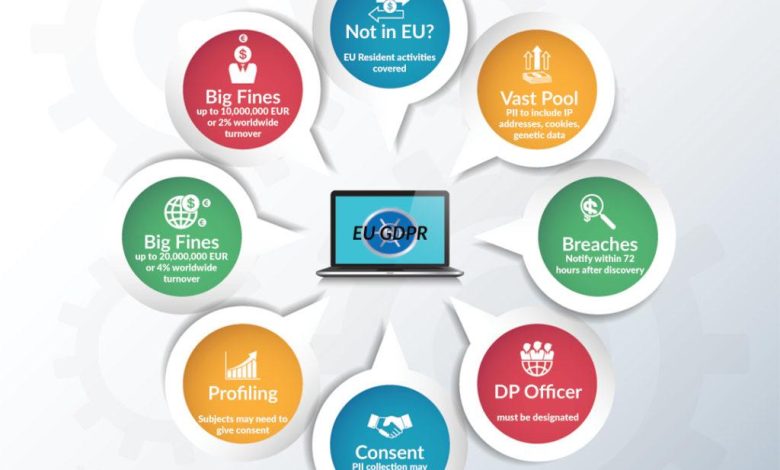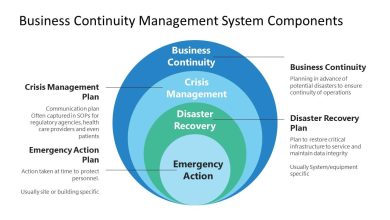Ensuring Compliance with Data Protection Regulations Through Backup Strategies

Ensuring Compliance with Data Protection Regulations Through Backup Strategies
As data breaches and cyber threats continue to escalate, compliance with data protection regulations has become a focal point for organizations worldwide. Regulations such as the GDPR (General Data Protection Regulation) and CCPA (California Consumer Privacy Act) impose stringent requirements for data handling, storage, and protection. A pivotal aspect of complying with these regulations is implementing effective backup strategies. In this article, we will explore how robust backup strategies contribute to compliance, the benefits they offer, practical tips to execute them, and real-world case studies that highlight their importance.
Understanding Data Protection Regulations
Data protection regulations are legal frameworks designed to safeguard personal data and ensure that organizations manage this information responsibly. Here are a few key regulations:
- GDPR: Enforced in the EU,it mandates data protection measures for personal data collected from individuals.
- CCPA: This California-based regulation gives consumers greater control over their personal information held by businesses.
- HIPAA: Focused on healthcare data, it ensures that sensitive patient information is handled with care.
The Importance of Backup Strategies in Compliance
One of the core requirements of these regulations is the need for organizations to protect personal data. Backup strategies play a crucial role in ensuring that data is not only secure but also recoverable in the event of loss or breach.
How Backup Strategies Support Compliance
Effective backup strategies contribute to data compliance in the following ways:
- Data Integrity: Regularly backing up data ensures its integrity and availability, which is a legal requirement under many data protection laws.
- Risk Mitigation: Backups reduce the risk of data loss due to cyberattacks, minimizing the potential for severe penalties for non-compliance.
- Data Audit: Well-structured backup systems allow for easier audits and compliance checks, keeping organizations prepared for regulatory scrutiny.
Benefits of Implementing backup Strategies
Implementing complete backup strategies not only assists in regulatory compliance but also provides numerous benefits to an organization:
1.Enhanced Security
Regular backups, especially when combined with encryption, protect sensitive data from unauthorized access and cyber threats.
2. Rapid Recovery
In the occurrence of a data loss incident, businesses can quickly restore operations from the latest backups, minimizing downtime.
3. Improved trust
When clients and stakeholders know that an organization has robust data protection measures in place, their trust increases, fostering better business relationships.
4. Cost Savings
While there may be upfront costs associated with implementing backup strategies, the long-term savings from avoiding data loss incidents can be significant.
Practical Tips to Implement effective Backup Strategies
Here are practical tips for organizations looking to enhance their data protection through backup strategies:
- Identify Critical Data: Determine which data is essential for compliance and business operations to prioritize backup efforts.
- Use the 3-2-1 Backup Rule: Maintain three copies of your data, two on different physical devices, and one off-site.
- Automate Backups: Utilize automation tools to ensure backups are consistently executed and up-to-date.
- Test Backup Systems: Regularly testing backup systems is vital to confirm they work as expected and that data can be restored without issues.
Case Studies Showcasing accomplished Backup Strategies
Case Study 1: A Healthcare Provider Tackling HIPAA Compliance
A medium-sized healthcare provider faced challenges with HIPAA compliance due to data breaches. They implemented a robust backup strategy involving end-to-end encryption and regular audits,leading to not only increased protection of patient data but also passing audits without implications.
Case Study 2: A Retail Company managing CCPA Compliance
A retail company struggling with CCPA compliance turned to a cloud-based backup solution. The ease of access to backup data enabled them to handle consumer data requests more efficiently, ultimately demonstrating their commitment to consumer privacy.
First-Hand Experience: Challenges and Solutions
While the importance of backup strategies in ensuring compliance is clear, organizations may encounter several challenges during implementation:
Common Challenges
- Resource Allocation: Many organizations struggle with insufficient resources dedicated to backup tasks.
- Employee Training: Staff may lack understanding of backup procedures and data protection protocols.
- Technology Integration: Integrating new backup solutions with existing systems can pose technical challenges.
Solutions to Overcome Challenges
- Outsource Backup Services: Consider engaging third-party providers for backup, helping to alleviate internal resource strains.
- Training Programs: Implement regular training sessions to educate employees on the importance of data protection and compliance.
- Seek Technical Expertise: Hiring or consulting with IT professionals can facilitate smoother technology integration.
Conclusion
In an era where data breaches are commonplace and regulations are tightening, ensuring compliance with data protection regulations through effective backup strategies is non-negotiable.Understanding the core principles of data protection, leveraging the benefits of diverse backup strategies, and addressing the common challenges are vital steps toward safeguarding both organizational data and client trust. By putting these strategies in place, organizations can not only comply with regulations like GDPR and CCPA but can also create a resilient framework that stands strong against data threats. The future of data protection relies heavily on proactive measures, and robust backup strategies are a decisive factor in that equation.



